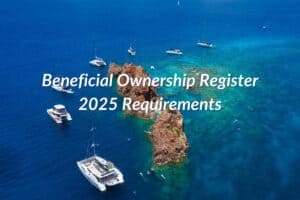Qatar’s tax system is one of the most business-friendly in the world, featuring no personal income, inheritance, gift, or wealth taxes. While Qatari-owned corporations enjoy full tax exemptions, foreign-owned businesses are subject to a modest 10% corporate tax, with higher rates for oil and gas activities. The country’s commitment to financial transparency is reflected in its participation in global agreements like CRS and FATCA. With no foreign exchange controls and anticipated VAT introduction, Qatar continues to attract investors and professionals seeking tax efficiency.
Qatar’s Tax System overview
| Corporate Income Tax: | None |
| Personal Income Tax: | None |
| Inheritance Tax: | None |
| Gift Tax: | None |
| Wealth Tax: | None |
Legal System
Qatar is a monarchy, which applies a mixture of Civil Law and Sharia.
Foreign Exchange Controls
There are no foreign exchange controls. The currency is the Qatari Riyal (QAR).
Personal Income Taxation
Qatar applies a territorial tax system for individuals, who are only subject to income tax if they have qualifying Qatari source income. Income from salaries, wages and allowances is not subject to tax. However, qualifying Qatari source “business income” from a profession, trade or business, is subject to tax at corporate income tax of 10%.
Corporate Income Tax
There is no corporate income tax on Qatari corporations wholly owned by Qatari or GCC nationals. However, corporations partly or wholly foreign owned with Qatar source income are subject to corporate income tax at 10%. Income from oil and gas exploration, and petrochemicals, is subject to tax at 35%.
Value Added Tax (VAT)
Qatar is expected to introduce VAT in the near term at a standard rate of 5%.
Anti-Avoidance Rules
Qatar has anti-avoidance rules, Transfer Pricing rules, as well as Thin Capitalization rules, but has no Controlled Foreign Corporation (CFC) rules.
QFC Trusts and Foundations
The Qatar Financial Center (QFC) introduced trust laws (Trust Regulations 2007) authorizing trusts. The QFC also introduced foundation laws (Foundation Regulations 2016), authorizing private interest foundations.
Double Tax Treaties (DTTs)
Qatar has a network of DTTs, including with Austria, Barbados, China, Cyprus, Guernsey, Hong Kong, Ireland, Isle of Man, Jersey, Luxembourg, Malta, Mauritius, Netherlands, Panama, Seychelles, Singapore, Switzerland, and the United Kingdom.
OECD Multilateral Convention
Qatar also ratified the Multilateral Convention on Mutual Administrative Assistance in Tax Matters, as amended by Protocol (2010). The Convention requires parties to exchange information “on request,” and allows parties to agree spontaneous and automatic exchange.
Common Reporting Standard (CRS)
Qatar executed the Multilateral Competent Authority Agreement (MCAA), and has implemented automatic information exchange under CRS.
FATCA
Qatar has executed a FATCA Model 1 IGA with the United States.




